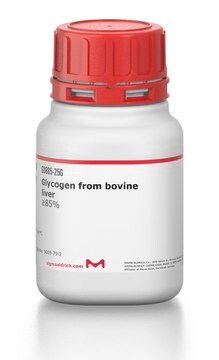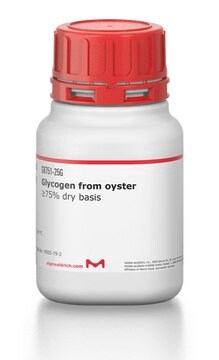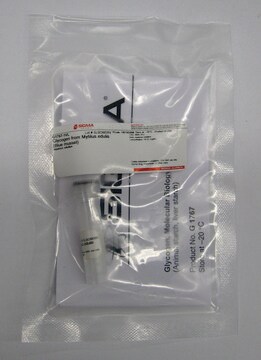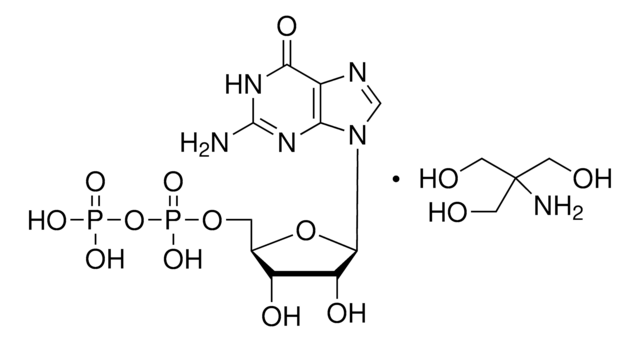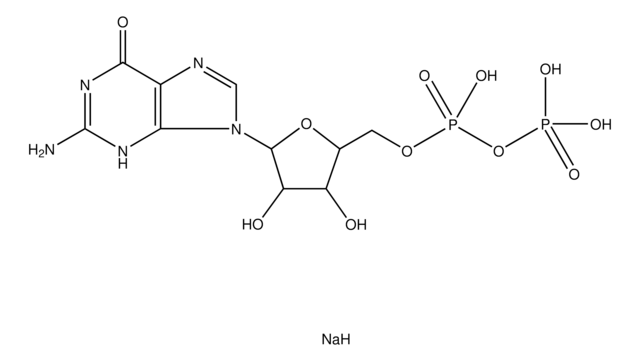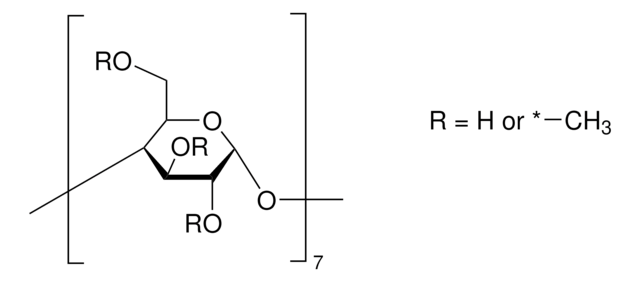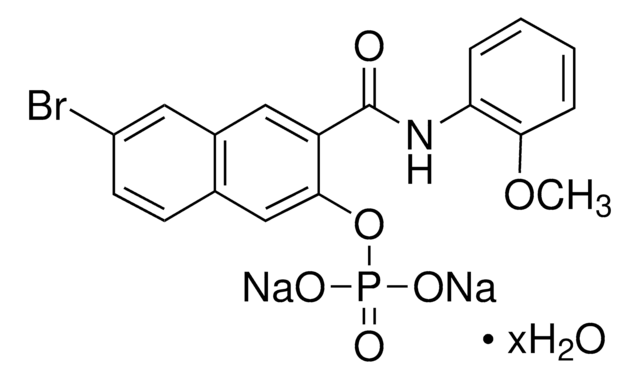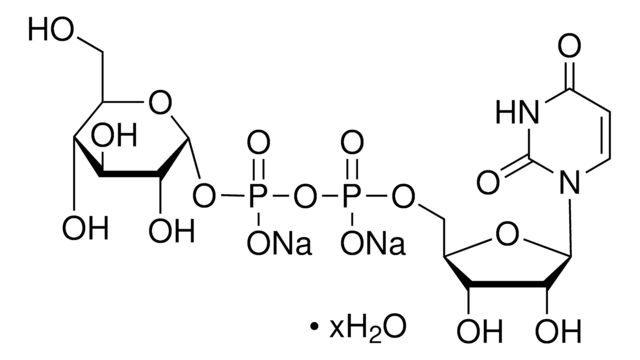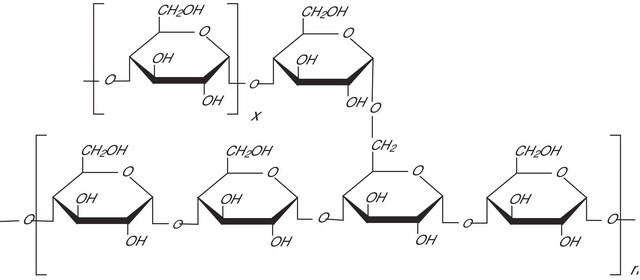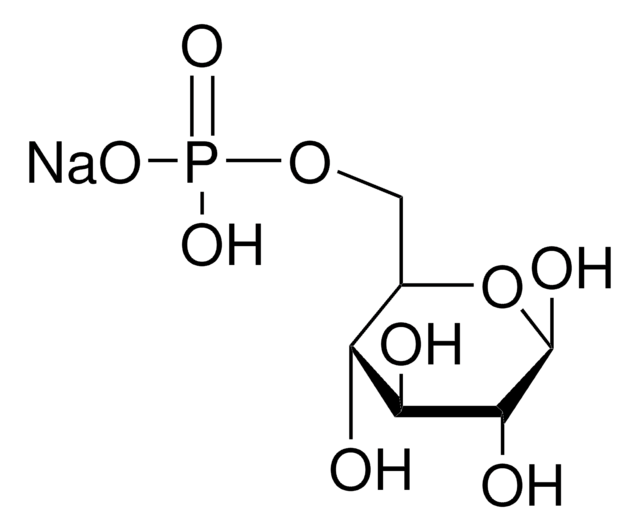G8876
Glycogen from rabbit liver
≥85% dry basis (enzymatic)
About This Item
Recommended Products
biological source
rabbit liver
Assay
≥85% dry basis (enzymatic)
form
powder
color
white to off-white
solubility
water: 40 mg/mL, clear to turbid, colorless to light yellow
storage temp.
2-8°C
InChI
1S/C24H42O21/c25-1-5-9(28)11(30)16(35)22(41-5)39-4-8-20(45-23-17(36)12(31)10(29)6(2-26)42-23)14(33)18(37)24(43-8)44-19-7(3-27)40-21(38)15(34)13(19)32/h5-38H,1-4H2/t5-,6-,7-,8-,9-,10-,11+,12+,13-,14-,15-,16-,17-,18-,19-,20-,21+,22+,23-,24-/m1/s1
InChI key
BYSGBSNPRWKUQH-UJDJLXLFSA-N
Looking for similar products? Visit Product Comparison Guide
General description
Application
- Glycogen from rabbit liver has been use as a standard for measurement of the hepatic glycogen content.
- In the1,4-α-D gIucan:orthophosphate α-glucosyl transferase assay, it has been used in the assay mixture.
- It has also been used as a standard for myocardial tissue glycogen analysis.
Biochem/physiol Actions
Preparation Note
Other Notes
Storage Class Code
11 - Combustible Solids
WGK
WGK 3
Flash Point(F)
Not applicable
Flash Point(C)
Not applicable
Personal Protective Equipment
Regulatory Listings
Regulatory Listings are mainly provided for chemical products. Only limited information can be provided here for non-chemical products. No entry means none of the components are listed. It is the user’s obligation to ensure the safe and legal use of the product.
JAN Code
G8876-10G:
G8876-5G:
G8876-1G:
G8876-BULK:
G8876-500MG:
G8876-VAR:
Certificates of Analysis (COA)
Search for Certificates of Analysis (COA) by entering the products Lot/Batch Number. Lot and Batch Numbers can be found on a product’s label following the words ‘Lot’ or ‘Batch’.
Already Own This Product?
Find documentation for the products that you have recently purchased in the Document Library.
Customers Also Viewed
Articles
Glucose metabolism is regulated by the opposing actions of insulin and glucagon. Insulin is released from pancreatic ß cells in response to high blood glucose levels and regulates glucose metabolism through its actions on muscle, liver, and adipose tissue.
Our team of scientists has experience in all areas of research including Life Science, Material Science, Chemical Synthesis, Chromatography, Analytical and many others.
Contact Technical Service